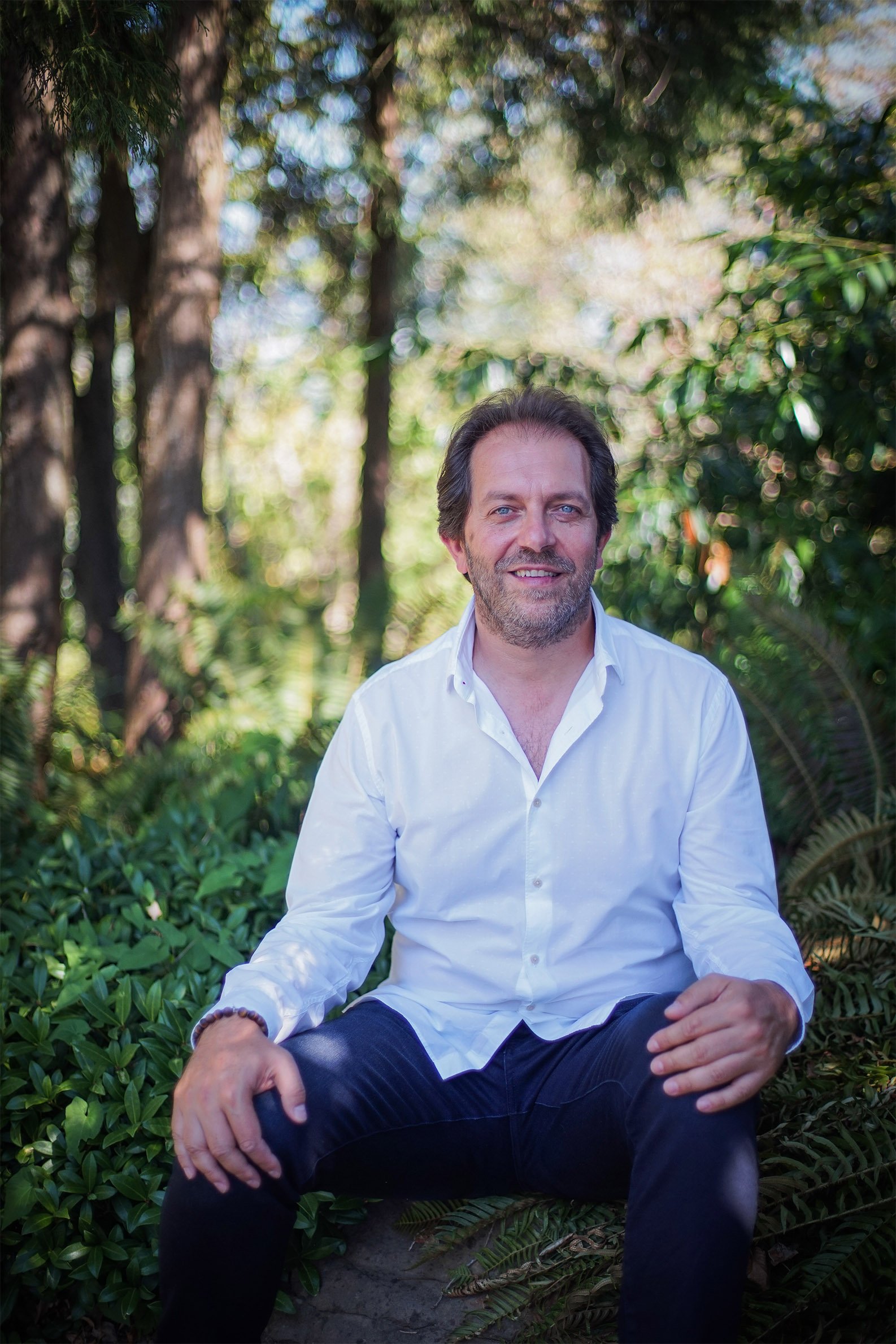The way you relate to yourself sets the tone for every connection you have with others. Your thoughts, emotions, and self-perceptions influence how you communicate, establish boundaries, and show up in relationships. When you treat yourself with kindness, respect, and understanding, you create an internal environment that naturally extends to how you engage with others. Self-awareness allows you to recognize your emotional triggers, understand your needs, and express yourself authentically.
Without a healthy relationship with yourself, it’s challenging to create authentic, meaningful connections with others because unresolved insecurities, self-doubt, and unmet emotional needs often spill over into external relationships, leading to patterns of codependency, emotional reactivity, or difficulty trusting others. Building a strong, compassionate relationship with yourself is not just self-care; it’s the foundation for healthy, fulfilling connections with the people around you.

At the core of all relationships is the concept of self-awareness and self-acceptance. When you truly understand your needs, values, and emotions, you can communicate more effectively, set healthy boundaries, and engage in relationships with authenticity. Conversely, if you struggle with self-criticism or lack self-compassion, it can lead to patterns of people-pleasing, codependency, or emotional reactivity.
Consider this: how can you expect others to treat you with respect if you don’t treat yourself that way? The relationship you have with yourself models the behavior you tolerate from others.
- Constant Self-Criticism: A harsh inner dialogue that undermines your confidence and self-worth. This often manifests as focusing on your flaws, downplaying your achievements, or feeling like you’re never good enough.
- Difficulty Setting Boundaries: Struggling to say no or prioritize your needs. You might feel guilty for asserting yourself or fear rejection if you don’t comply with others’ expectations.
- Seeking Validation: Relying on others’ approval to feel worthy or valued. Your sense of self-worth fluctuates based on external feedback rather than internal confidence.
- Neglecting Self-Care: Ignoring your physical, emotional, or mental well-being. This can look like overworking, not resting when needed, or dismissing your emotional needs.
- Fear of Vulnerability: Avoiding emotional intimacy due to fear of rejection or judgment. You may struggle to open up about your feelings, leading to surface-level connections.
- People-Pleasing Tendencies: Prioritizing others’ needs at the expense of your own. This often stems from a fear of conflict or a desire to be liked, even if it leads to resentment.
- Self-Neglect in Relationships: Consistently putting your partner’s or friends’ needs above your own, feeling responsible for their emotions, and neglecting your personal growth.
- Over-Attachment to Outcomes: Tying your self-worth to achievements or success, feeling devastated by setbacks, and struggling to separate your identity from your accomplishments.
- Inability to Celebrate Yourself: Feeling uncomfortable acknowledging your wins or dismissing compliments because you don’t believe you deserve them.
Emotional Dependency: Relying heavily on others to regulate your emotions, seeking constant reassurance, or feeling lost without external support.
- Communication: When you’re in tune with your emotions and needs, you can express them clearly and assertively. Without this awareness, communication often becomes reactive or passive-aggressive. Self-awareness allows you to articulate your thoughts honestly and confidently, fostering open dialogues where both parties feel heard and validated. Poor self-relationship often leads to miscommunication, where emotions are suppressed until they erupt in unhealthy ways.
- Boundaries: A strong self-relationship helps you recognize your limits and communicate them without guilt. Setting boundaries becomes an act of self-respect, not selfishness. Healthy boundaries create space for mutual respect and prevent burnout. Without them, you might find yourself overwhelmed, resentful, or taken for granted, as people unknowingly cross lines you never clearly defined.
- Emotional Regulation: Self-awareness allows you to manage your emotions effectively, reducing conflict and fostering healthier connections. When you understand your emotional triggers, you can respond thoughtfully rather than react impulsively. This emotional intelligence helps maintain calm during disagreements, enabling constructive conflict resolution rather than emotional outbursts.
- Attracting Healthy Relationships: When you respect and value yourself, you’re more likely to attract people who treat you with the same respect. A healthy self-relationship acts as a filter, allowing you to engage with individuals who align with your values and boundaries. Conversely, unresolved insecurities often draw in relationships that reflect those same inner struggles, leading to cycles of toxicity or codependency.
- Practice Self-Compassion: Treat yourself with the same kindness you would offer a friend. Acknowledge your mistakes without harsh judgment. Self-compassion involves recognizing that imperfection is part of being human and that your worth is not defined by your flaws or failures.
- Engage in Self-Reflection: Regularly check in with your emotions, thoughts, and behaviors. Journaling can be a powerful tool for this. Reflection helps you identify patterns, understand your triggers, and gain insights into how your inner world shapes your external experiences.
- Prioritize Self-Care: Take care of your physical, mental, and emotional health. This isn’t just about bubble baths—it’s about meeting your fundamental needs. Self-care can include proper nutrition, rest, mental health support, creative outlets, and practices that recharge your energy.
- Set Boundaries: Learn to say no without guilt. Your time, energy, and well-being are valuable. Boundaries are an expression of self-respect and help maintain healthy dynamics in relationships. They allow you to protect your peace, manage your energy, and foster connections that are mutually respectful.
- Challenge Negative Self-Talk: Replace critical thoughts with affirmations rooted in self-acceptance and growth. Recognize when your inner dialogue becomes self-sabotaging and consciously shift to a narrative that uplifts and empowers you.
- Pursue Personal Growth: Invest in activities and experiences that align with your passions and values. Growth can come from learning new skills, stepping out of your comfort zone, and embracing opportunities that contribute to your evolution.
- Take Responsibility for Your Emotions: Recognize that your feelings are your own, and it’s your responsibility to process and manage them. This doesn’t mean ignoring your emotions but understanding their roots without blaming others for how you feel. When you own your emotional responses, you empower yourself to choose healthier reactions and break free from victimhood.
- Take Responsibility for How You Show Up: Your actions, words, and energy impact your relationships and environments. Being intentional about how you present yourself fosters authenticity and integrity. Reflect on whether your behavior aligns with your values and make adjustments as needed.
- Meet Your Own Needs: While relationships can fulfill some needs, it’s ultimately your responsibility to identify and meet your core needs. This mindset reduces dependency on others for your happiness, creating healthier, interdependent connections rather than codependent dynamics.
- Move from Victim to Empowerment: Shifting from a victim mindset to an empowered one means acknowledging your role in your life experiences. While you may not control everything that happens to you, you have the power to choose your responses, learn from challenges, and create the life you desire.
If you’re looking to build stronger, healthier relationships, start by strengthening your relationship with yourself. As a relationship coach for men and women in Vancouver, I help individuals develop self-awareness, set boundaries, and foster meaningful connections. Whether you’re navigating personal growth or relationship challenges, coaching can provide the clarity and support you need. Ready to transform your relationships? Let’s connect!
Reflect on these questions:
- How do I speak to myself when I make a mistake? Am I compassionate or overly critical?
- Do I prioritize my needs or constantly put others first? How does this impact my well-being and sense of self?
- What boundaries do I need to set to feel more respected and fulfilled? Where have I allowed boundaries to be crossed, and how has that affected me?
- How do my self-perceptions influence my relationships with others? Are there limiting beliefs I hold about myself that shape how I connect with people?
- In what ways do I take responsibility for my emotions, and when do I tend to blame others for how I feel?
- How do I show up for myself when I’m struggling, and what practices help me feel grounded and supported?
- What are the unmet needs in my life that I expect others to fulfill, and how can I take ownership of meeting them?
- How would my relationships change if I fully embraced my worth and authenticity without seeking external validation?
When you cultivate a loving, respectful relationship with yourself, it naturally extends to your interactions with others. You’re better equipped to give and receive love, handle conflict with grace, and build connections rooted in authenticity rather than insecurity. Self-love acts as a foundation of emotional security, enabling you to form bonds that are supportive, empowering, and deeply fulfilling.
Your relationship with yourself is the foundation upon which all other relationships are built. Life is a continuous journey, not a destination, and throughout this journey, we are constantly evolving, healing, and growing. Nurturing self-awareness, self-compassion, and personal growth allows you to create a life rich with meaningful connections and emotional well-being.
An essential part of this journey is surrounding yourself with people who make you feel safe to be vulnerable, authentic, and ever-changing. Growth doesn’t happen in isolation; the power of healing together—through shared experiences, honest conversations, and mutual support—creates an environment where both you and your relationships thrive. When we feel safe with others, we are more willing to explore our inner landscapes, face our fears, and embrace transformation.
The beauty of this human experience is realizing that there is no final destination. Growth and healing are lifelong processes. The key is not to seek perfection but to remain open to learning and evolving. Along the way, the relationships we build with others become mirrors reflecting our inner world, offering opportunities to heal old wounds, celebrate our progress, and discover new parts of ourselves. This interconnectedness is the essence of our human journey, where self-love and connection with others are not separate paths but intertwined roads leading to deeper fulfillment.

How About Having a Powerful
First 45 Minute Conversation?


